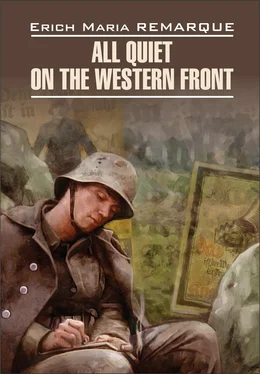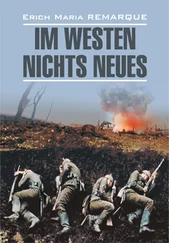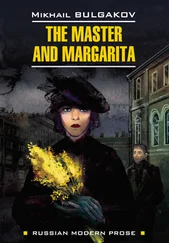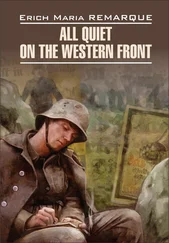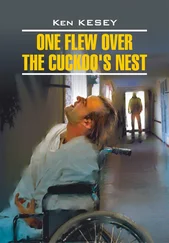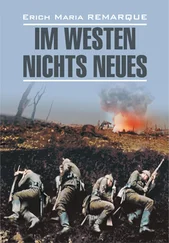All around there is the clicking of wire-cutters, planks are manhandled across the entanglements and we jump through the narrow gaps into the trenches. Haie hits a massive Frenchman in the throat with his spade and throws the first hand-grenade; for a second or so we duck down behind a parapet, and then the straight section of trench in front of us is empty. The next throw whistles over the corner of the trench and gives us clear passage, and as we go past we toss explosives into the dugouts; the earth shakes, creaking, smoking and groaning, we stumble on over slippery fragments of flesh, over soft bodies; I fall into a belly that has been ripped open, and on the body is a new, clean, French officer’s cap.
The fighting stops. We lose our contact with the enemy. Since we can’t hold out here for a long time, we are brought back to our original position under covering fire from our artillery. We hardly know what we are doing as we dive into the nearest dugout to grab what we can of any provisions that we happen to see before we get away, especially tins of corned beef.
We get back in one piece. For the moment there are no more attacks from over there. We he on the ground for more than an hour, getting our breath and resting, before anyone says anything. We are so completely done in that we don’t even think of the tinned beef, even though we are ravenously hungry. Only gradually do we turn into something like human beings again.
The corned beef that they get on the other side is famous all along the front. Occasionally it serves as the main reason for a surprise raid from our side, because our provisions are generally bad; we are always hungry.
We’ve got hold of five tins altogether. Those people over there get looked after well, it’s the lap of luxury compared to us lot here in hungry corner, with our turnip jam – on the other side the beef is just sitting around, all you need to do is take it. Haie has also snaffled a thin loaf of French white bread and tucked it in his belt like a spade. There’s a bit of blood on one end of it, but that can be cut off.
It’s lucky that we’ve got some decent food to eat now; we’ll still need all our strength. Having a full belly is just as important as a good dugout; that’s why we are so keen to get hold of food, because it can save our lives.
Tjaden has even managed to get hold of a couple of water bottles full of cognac. We pass them round.
The evening benediction starts. Night falls, and mist rises out of the shell holes. It looks as if the craters are full of ghostly secrets. The white vapour creeps around fearfully before it dares to float up over the edge and away. Then long streaks drift from one shell hole to the next.
It’s cold. I’m on look-out [164] on look-out – на посту
, staring into the darkness. I feel limp and drained, just like I always do after an attack, and so I find it hard to be alone with my own thoughts. They are not really thoughts; they are memories that come to torment me in my weakness and put me into a strange mood.
Up go the Verey lights – and I see a picture of a summer evening, and I’m in the cloistered courtyard of the cathedral looking at the tall rose trees that grow in the middle of the little garden there, where the deans of the chapter are buried. All around are stone carvings for the different stations of the cross [165] stations of the cross – Крестный путь (зд.) – дорога страданий, полная стойко переносимых бедствий
. There is nobody there; this flower-filled square is caught up in a profound silence, the sun shines warm on the thick grey stones, I place my hand on one and feel the warmth. Above the right-hand end of the cloister’s slate roof the green spire of the cathedral rises up into the pale blue wash of the evening sky. Between the slender sunlit columns of the cloisters themselves is that cool darkness that only churches have, and I am standing there and thinking that by the time I am twenty I shall have learnt the secret of the confusion that women cause in men’s minds.
The picture is astonishingly close, it touches me before it dissolves under the flash of the next Verey light.
I grip my rifle and hold it properly upright. The barrel is wet, and I put my hand round it and wipe off the dampness with my fingers.
Between the meadows behind our home town there was a row of old poplar trees that rose up by the side of a stream. You could see them from a long way off, and although they were actually only along one side, the place was still known as the poplar avenue. Even when we were children it was a favourite place and those poplars had an inexplicable attraction for us, so that we used to spend whole days there listening to their gentle rustling. We used to sit beneath them on the banks of the stream and dangle our feet in the bright, fast-moving eddies. The clean scent of the water and the song of the wind in the poplars captured our imagination. We really loved them, and picturing those days still makes my heart race, before the image vanishes again.
It is a strange thing that all the memories have these two qualities. They are always full of quietness, that is the most striking thing about them; and even when things weren’t like that in reality, they still seem to have that quality. They are soundless apparitions, which speak to me by looks and gestures, wordless and silent – and their silence is precisely what disturbs me, forces me to hold on to my sleeve or my rifle so that I don’t abandon myself to this seductive dissolution, in which my body would like to disperse itself and flow away towards the silent powers that he behind all things.
The pictures are so silent because that is something which is quite incomprehensible to us. There is no silence at the front and the spell of the front is so strong that we are never away from it. Even in the depots way behind the lines, or in the rest areas, the buzz and the muted thundering of the shellfire is always in our ears. We are never so far away that we can’t hear it any more. But in the last few days it has been unbearable.
The quietness is the reason why all these images awaken in us not so much desire as sadness – a vast and inexplicable melancholy. The scenes existed once – but they will never return. They are gone, they are another world, a world that is in the past for us. When we were doing our basic training, those scenes called up in us a wild and rebellious longing, they were still a part of us then, we belonged to them and they to us, even if we had been taken away from them. They rose up out of the soldiers’ songs that we sang, when we marched off to the heath for exercises on the long, long trail а-winding between the red rays of dawn and the black silhouettes of the forest, they were still a strong memory then, a memory that was inside us and came from within us.
But here in the trenches we have lost that memory. It no longer rises up from inside us – we are dead and the memory is far off on some distant horizon, an apparition, a puzzling reflection come to haunt us, something we are afraid of and which we love without hope. It is strong, and our desire is strong; but it is unattainable, and we know it. It is just as impossible as the chance of becoming a general.
And even if someone were to give us it back, that landscape of our youth, we wouldn’t have much idea of how to handle it. The tender, secret forces that bound it to us cannot come back to life. We should be in the landscape, wandering around; we should remember, and love it, and be moved by the sight of it. But it would be just the same as when we see a photograph of one of our friends who has been killed, and we stop to think about it. The features are his, the face is his, and the days we spent with him take on a deceptive life in our memories; but it isn’t really him.
Читать дальше
Конец ознакомительного отрывка
Купить книгу
